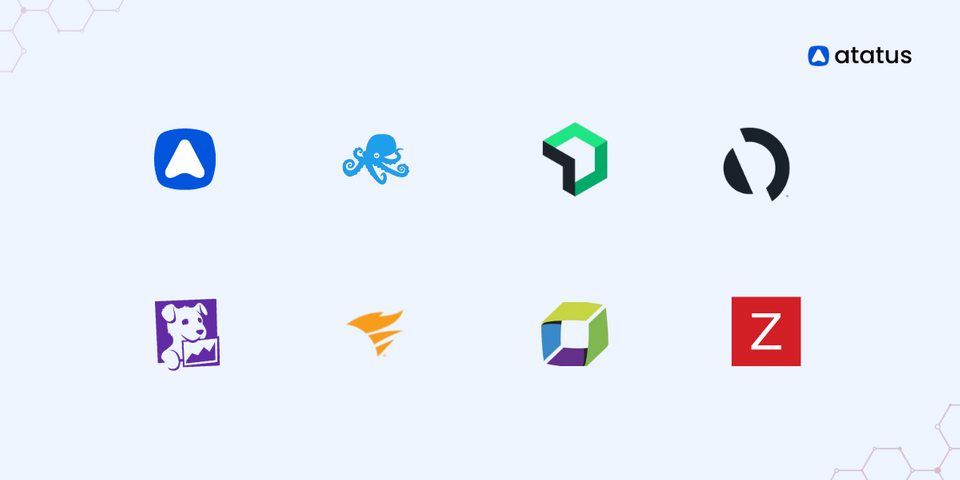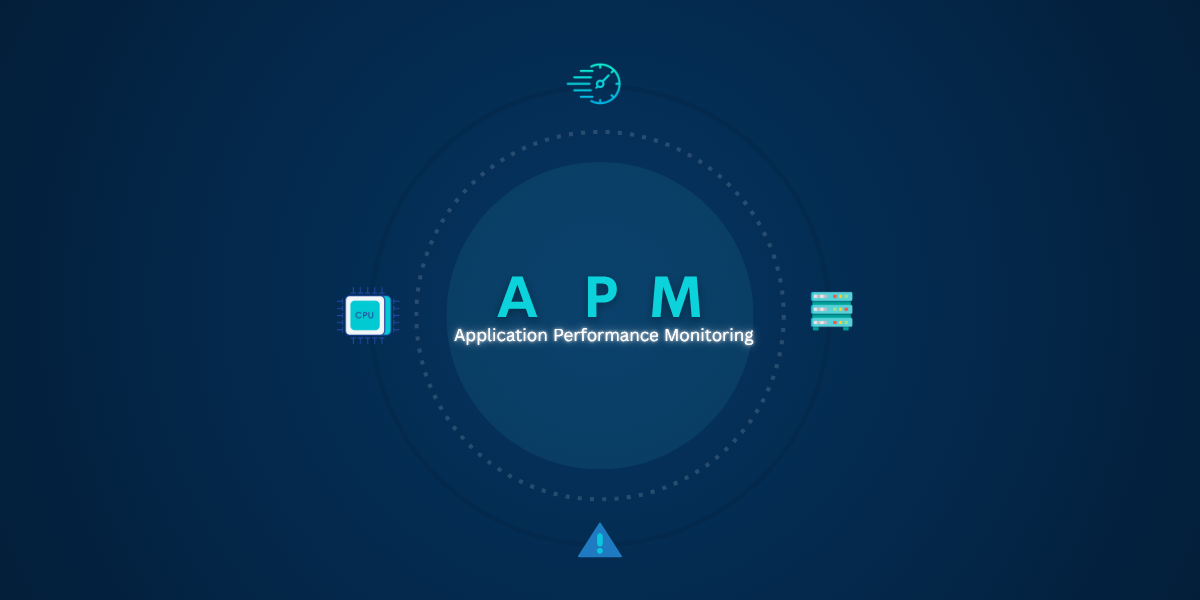15 Best DevOps Tools to Use in 2025 and Beyond
As you stroll through history, what changes do you notice in the culture of the medieval period, early modern period, and today, as in the modern-day?
That's a simple question to answer.
Their clothing, eating habits, modes of communication, and vehicles have all evolved and continue to evolve in the current era.
So, what benefits may a company's cultural shift bring?
You guessed it correctly!!! New DevOps tools and technology have a significant impact on cultural change. And, with the right DevOps automation tools, you can quickly achieve business transformation!
We will go over the following:
What is DevOps?
DevOps is a set of practices that bring together software development (Dev) and IT operations (Ops). Its goal is to abbreviate the systems development life cycle and provide high-quality software delivery on a continual basis. DevOps works in tandem with Agile software development, and numerous parts of DevOps are derived from the Agile methodology.
Academics and practitioners have not produced a unique definition for the term "DevOps" other than it being a cross-functional combination of the terminology and concepts for "development" and "operations." The aim behind this strategy is to assign responsibility for production issues and solutions to delivery teams, whether legacy or new.
What is DevOps Tool?
A DevOps tool is an application that assists the automation of software development. It primarily focuses on product management, software development, and operations professionals' communication and collaboration. DevOps Tool also allows teams to automate the majority of software development activities such as build, dispute resolution, dependency management, and deployment, among others, reducing manual input.
15 Best DevOps Tools in 2021
- Jenkins
- Gradle
- GitHub
- Bitbucket
- Docker
- Kubernetes
- Atatus
- New Relic
- Puppet
- Ansible
- Bamboo
- CircleCI
- Selenium
- Testsigma
- Slack
DevOps Automation Tools
#1 Jenkins

Jenkins is a free and open-source automation server that helps in the automation of software development processes such as building, CI/CD, deployment, and testing. This DevOps solution makes it simple for teams to keep track of repetitive tasks, seamlessly integrate changes, and instantly spot issues.
It is a Java-based open-source automation service that functions as a continuous integration (CI) tool for developers to make it easier to incorporate new components into applications for smooth integration. Jenkins achieves this purpose by utilizing plugins for integrations.
It has been around for a long time and, due to its mature ecosystem, plugin support, documentation, and community has nearly become a standard. It has been updated multiple times in the last few years. Because of its simple UX/Syntax for pipelines and Docker integration, it has become one of the top choices for many companies.
#2 Gradle

Gradle is a powerful tool that enables you to write code in Java, C++, Python, and other languages. Popular IDEs such as Netbeans, Eclipse, and IntelliJ IDEA all support Gradle. If that isn't enough to persuade you, consider the fact that Google has chosen it as the official build tool for Android Studio.
Gradle presents a Groovy-based DSL for describing builds, whereas Maven and Ant utilize XML for configuration. Gradle's developers also developed a Kotlin-based DSL in 2016, so you can now create your build scripts in Kotlin. Gradle does have some learning curves, so if you've used Groovy, Kotlin, or another JVM language before, it'll come in handy.
Gradle's strongest feature is incremental builds, which save a significant amount of compile time. As per performance measurements, Gradle is up to 100 times faster than Maven. This is due to incrementality, but also due to Gradle's build cache and daemon. In between builds, the build cache reuses task outputs, while the Gradle Daemon keeps building information hot in memory.
DevOps Version Control Tools
#3 GitHub

Github is widely regarded as one of the world's largest and most advanced development platforms. GitHub's primary features include an easy-to-use UI, smart features such as the ability to restore accidentally deleted repositories, prevent production deletions, and a wide range of integrations and security. GitHub has almost no downtime or outages, making it incredibly dependable.
It provides web hosting as well as Git version control for your software development. It was released in 2008 and was written in Ruby, C, Go, and ECMAScript. It is currently utilized by more than 56 million people and 3 million organizations around the world.
Apart from its functionalities, GitHub offers Git's source code management and distributed version control tools. Since its basic services are free, it is mostly used to host open-source projects.
#4 Bitbucket

BitBucket is a source code and development project version control repository service. Mercurial or Git revision control systems are used to power the service. If you utilize other Atlassian products, it'll come in handy. BitBucket is also known for its efficiency when it comes to maintaining a large number of repositories. A public BitBucket repository can have an unlimited number of users.
BitBucket is also known for its seamless JIRA and Confluence integrations. BitBucket is a great option for projects that require private repositories. Pipelines service is now available for complete CI/CD cycles. It's not simply a platform for hosting code; it's also a platform for code management. From a single platform, teams can plan projects, collaborate on code, test, and deploy.
DevOps Container Management Tools
#5 Docker

Since its launch in 2013, Docker has been the most popular container platform, and it continues to evolve. It's also regarded as one of the most crucial DevOps tools available. Containerization has gained traction in the tech sector because of Docker, which allows for remote development and automates application deployment.
It separates applications into containers, making them more portable and secure. Docker applications are also platform and OS-independent. Instead of using virtual machines like VirtualBox, you can utilize Docker containers. The thing I appreciate best about Docker is that you don't have to worry about managing dependencies.
All dependencies can be packaged together in the application's container and shipped as a single unit. The software can then be run on any system or platform without any issues.
Docker also integrates with Jenkins and Bamboo. You can improve your delivery workflow even more if you use it in combination with one of these automation servers.
#6 Kubernetes

Kubernetes is a container orchestration platform that pushes the boundaries of containerization. It's compatible with Docker and its alternatives. Kubernetes is still relatively new, having only been released in 2015. It was founded by two Google engineers who were looking for a way to handle containers at a large scale. Kubernetes allows you to organize your containers into logical pieces.
If you only have a few containers, you might not require a container orchestration platform. When you reach a particular degree of complexity and need to scale your resources, it's the next logical step. Kubernetes makes it possible to automate the management of hundreds of containers.
You don't have to bind your containerized applications to a single machine with Kubernetes. Instead, you can use a cluster of computers to install it. Kubernetes automates the distribution and scheduling of containers across a cluster.
DevOps Monitoring Tools
#7 Atatus

Atatus is an application performance monitoring (APM) tool that assists you in diagnosing performance issues and tracking them down to the line of code, function, or API call that caused them. Status's error monitoring procedure is also well-suited to the APM tool. It automatically identifies your highest priority defects and issues for you based on your primary concerns.
You can see a full overview of your database performance, as well as slow database queries and the option to filter and inspect the original SQL query trace. You can also view individual database breakdowns and throughput to see whether the database response time has deteriorated. All of the information about the stack trace, request parameters, environment, affected users, host, and more is available in one place.
Atatus APM can assist you in getting the most out of other DevOps tools by alerting you about issues. It brings Development and Operations together by offering a single source of truth for the entire team about the origin of errors and performance problems, as it automatically ties errors back to the source code.
#8 New Relic

New Relic is a full-stack monitoring tool for Cloud-based software and applications. New Relic provides thorough logs, top-to-bottom visibility, and monitoring, as well as rich dashboards. New Relic has extensive backend call monitoring capabilities and can pinpoint the source of a system's slowness.
Apart from displaying the current status of development processes in real-time, it also assists you in resolving issues, accelerating deployment cycles, and managing related tasks, meeting all of the major criteria for a useful DevOps tool. It allows you to centralize all telemetry data for AI-driven insights and full-stack observability, reducing time-to-market and increasing service reliability. Companies that require a deep study of many stack profiles can benefit from the tool.
DevOps Configuration Management Tools
#9 Puppet

Puppet is a configuration management platform that works across multiple platforms. It enables you to write your infrastructure management. You can deliver software faster and more safely because it automates infrastructure management. Developers can also use Puppet as an open-source tool for smaller projects.
If you have a larger infrastructure, however, Puppet's extra capabilities, such as real-time reports, role-based access control, and node management, may be useful. You can manage several teams and hundreds of resources with Puppet. It recognizes relationships in your infrastructure on its own.
It intelligently handles dependencies and failures. It skips all dependent configurations when it discovers a bad configuration. Puppet's main feature is that it has over 5,000 modules and integrates with many popular DevOps tools.
#10 Ansible

Ansible is a configuration management tool used to automate deployment and set up your infrastructure. When compared to other DevOps tools, its primary selling factors are simplicity and convenience of use. Ansible and Puppet both use the Infrastructure As Code (IAC) approach.
It does, however, use the extremely simple YAML syntax. Ansible uses YAML to define tasks, whereas Puppet uses its own declarative language.
Another characteristic of Ansible that is commonly discussed is its agentless architecture. Ansible is a secure and lightweight solution for configuration management automation because no daemons or agents run in the background. Ansible, like Puppet, includes a number of modules.
DevOps Pipeline (CI/CD) Tools
#11 Bamboo

Bamboo is Atlassian's delivery (CI/CD) server, which allows you to automate your delivery pipeline from build to deployment. It comes with a lot of pre-built features that you would have to set up manually in other CI/CD tools. This is also why Bamboo has a small number of plugins (about 100). Bamboo, in fact, does a lot of things out of the box, so you won't need any plugins.
Bamboo integrates easily with Atlassian products like Jira and Bitbucket. Built-in Git and Mercurial branching workflows and test environments are also available. Overall, Bamboo can help you save a lot of time when it comes to configuration. It also has a more user-friendly interface with tooltips, auto-completion, and other useful features.
#12 CircleCI

CircleCI, a cloud-native CI/CD platform, provides dependability and speed for your software development process regardless of the size of your DevOps team. You can swiftly create and deploy high-performance software on your infrastructure or in the cloud. Since its launch in 2011, CircleCI has grown to handle over 35 million builds each month. Spotify, PagerDuty, Ford Motor Company, Samsung, and others are among the companies that use it.
To make testing easier, CircleCI runs your CI/CD workflow in a virtual machine or clean container. It immediately alerts your team in the event of a pipeline failure. You can also use their Slack integration to automate notifications. To facilitate quick time-to-market, CircleCI performs automated deployment of codes to a separate environment.
It supports Docker and operates on Windows, macOS, and Linux. Many languages such as Javascript, C++, PHP, Python, .NET, Ruby, etc. along with frameworks, toolchains, and versions are supported,
DevOps Test Automation Tools
#13 Selenium

Selenium is user-friendly end-to-end testing software that allows testers to simulate web system behaviour, send API queries, and analyse the behaviour of a system. It allows you to develop elaborate and advanced test scripts in RUBY or HTML to deal with a range of causes.
Selenium is an integrated development environment (IDE) for web application developers that allows them to edit, record, and debug tests. For various test scenarios, you can create custom start points and breakpoints.
Jenkins, Maven, TestNG, QMetry, and SauceLabs are just a few of the development platforms that can be integrated. Selenium Grid allows for parallel testing. All well-known languages are supported, including Java, Ruby, C#, PHP, JavaScript, Perl, and R.
#14 Testsigma

Testsigma is a SaaS, AI-driven test automation tool for Web and Mobile applications that uses a shift-left technique to perform continuous testing. Testsigma assists web and mobile-dependent businesses in lowering software quality costs and releasing high-quality software products more frequently.
Testsigma employs artificial intelligence (AI) to create more stable and reliable tests and to accelerate the execution and maintenance of automated tests. It was created to address some of the issues with existing automation testing solutions, such as high initial costs and time, slow test development, high execution costs and time, high maintenance costs, less automation coverage, and longer payback time.
The initial setup time, cost, and scale-up time for Testsigma are all near nil. Testsigma's simplicity allows anyone to create automated tests 5X faster using natural language and run them on thousands of cloud-based devices. The AI features advise that test plans be improved to incorporate relevant or affected test cases and that a dynamic locator method be used to reduce maintenance time and effort.
DevOps Collaboration Tool
#15 Slack

Slack is a collaboration and communication software that has recently garnered a lot of traction. It is well-known for its real-time discussions, search function, and user-friendly interface. Because of its strong UI, engaging features, and agility, Slack is quickly replacing email in the software sector.
Users can utilize Slack's application programming interface (API) to make applications and automate activities including sending automatic notifications depending on human input, sending alerts based on defined criteria, and creating internal support tickets automatically. The API for Slack is well-known for its connectivity with a wide range of applications, frameworks, and services.
Slack integrations for instant messaging are now available in a number of software collaboration platforms as a result of its popularity. You can also be used to create custom chatbots, infrastructure routines, and triggers for Slack by using programming.
So, which DevOps tools are right for your needs?
Every year, new DevOps tools appear on the market, each with its own set of capabilities designed to make your DevOps journey easier. It takes some experimentation to find the ideal DevOps tools. Open-source tools typically take longer to set up and configure. Most commercial DevOps tools offer free trials, allowing you to try and evaluate them without spending any money. It all comes down to your needs and goals.
Try your 14-day free trial of Atatus, today!!!
#1 Solution for Logs, Traces & Metrics
APM
Kubernetes
Logs
Synthetics
RUM
Serverless
Security
More





![New Relic vs Splunk - In-depth Comparison [2025]](/blog/content/images/size/w960/2024/10/Datadog-vs-sentry--19-.png)